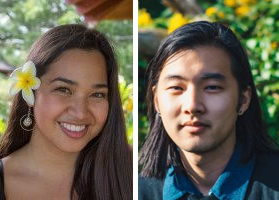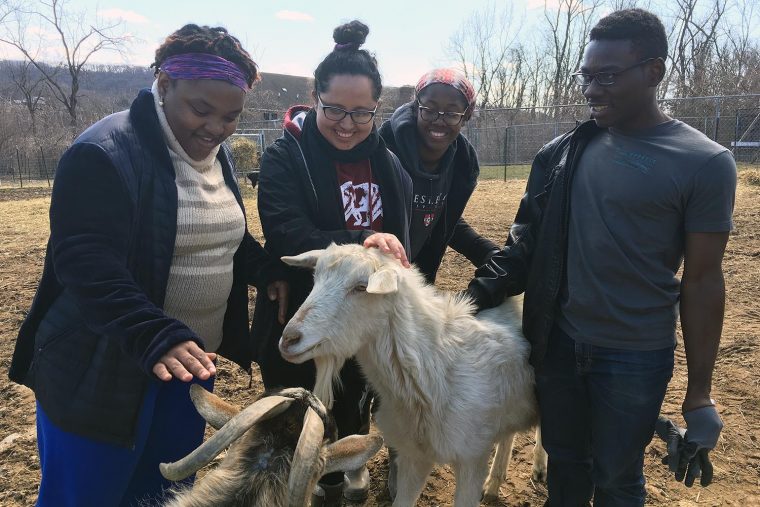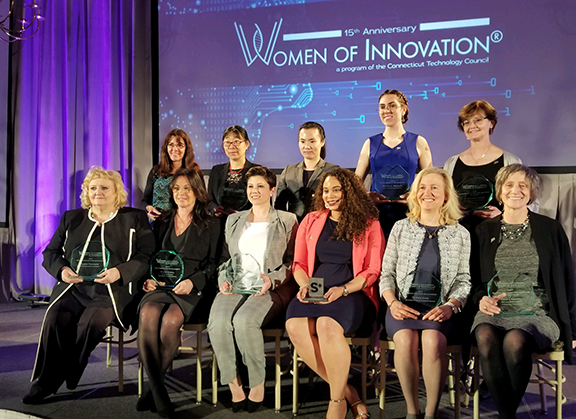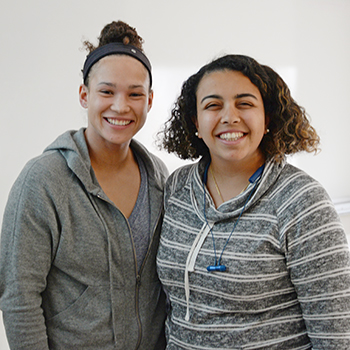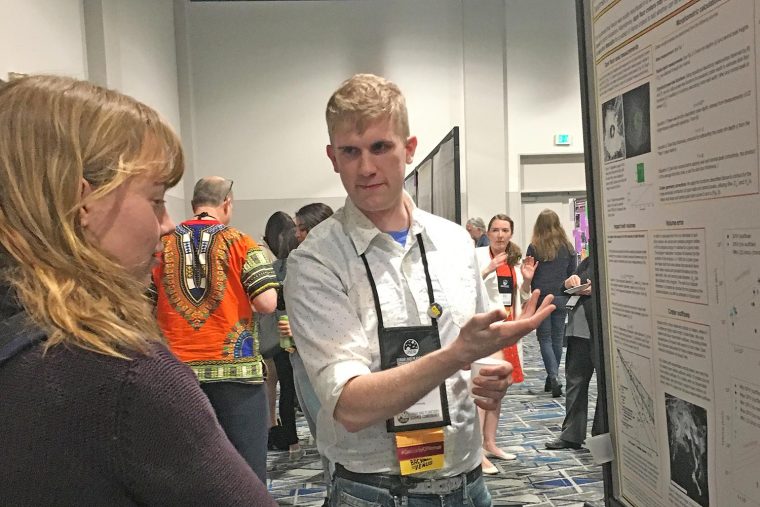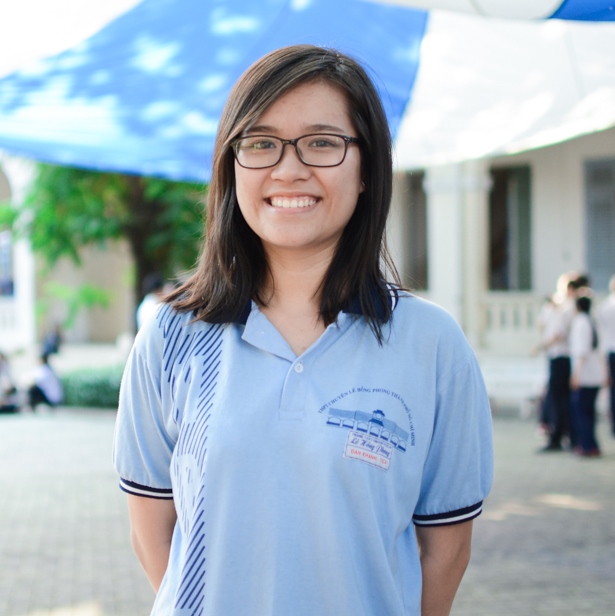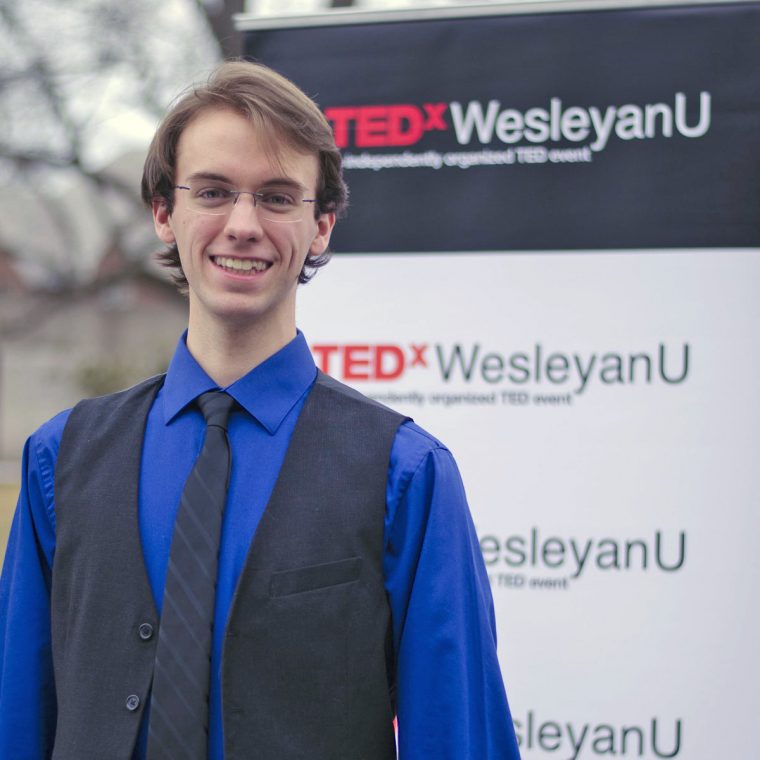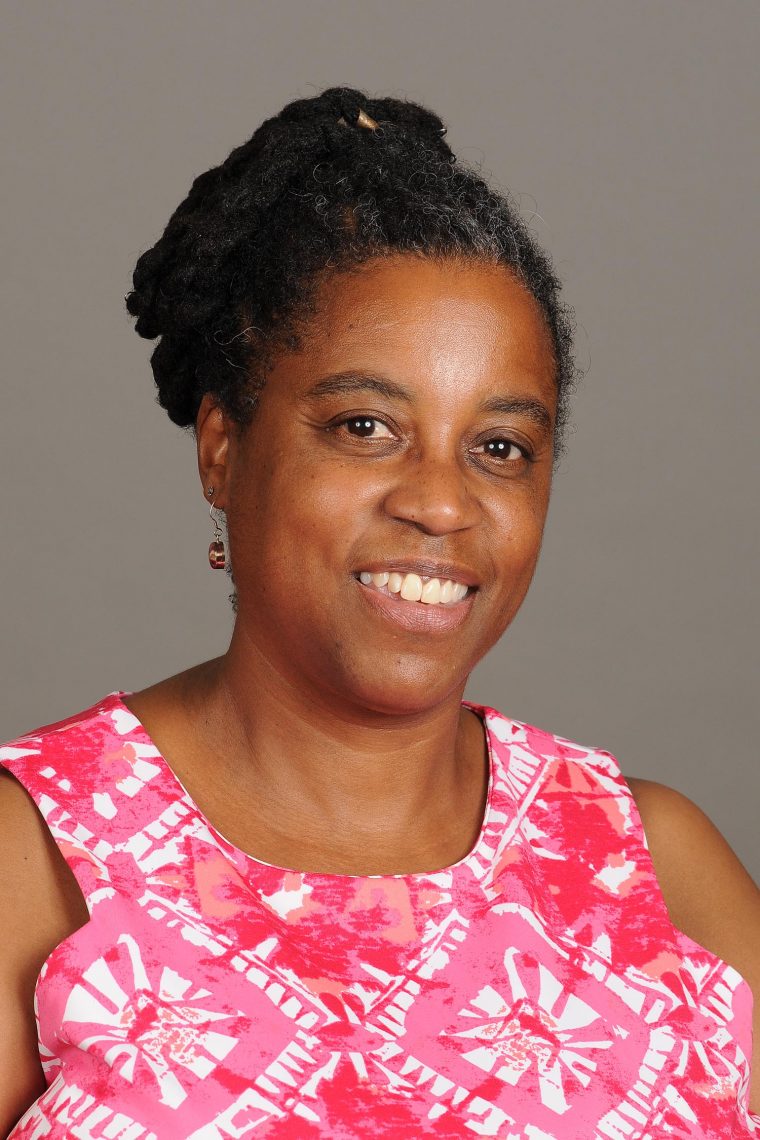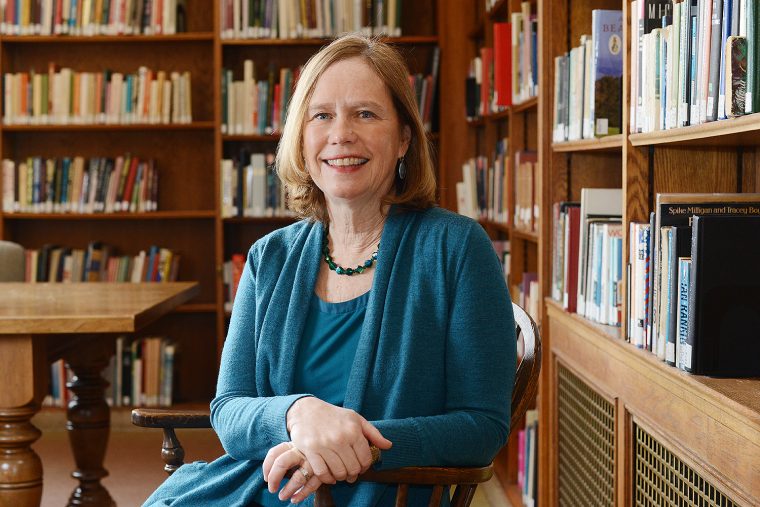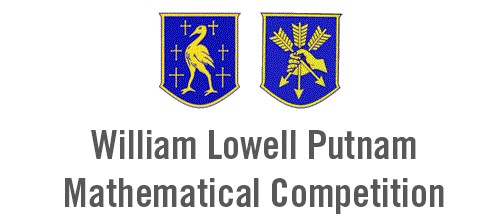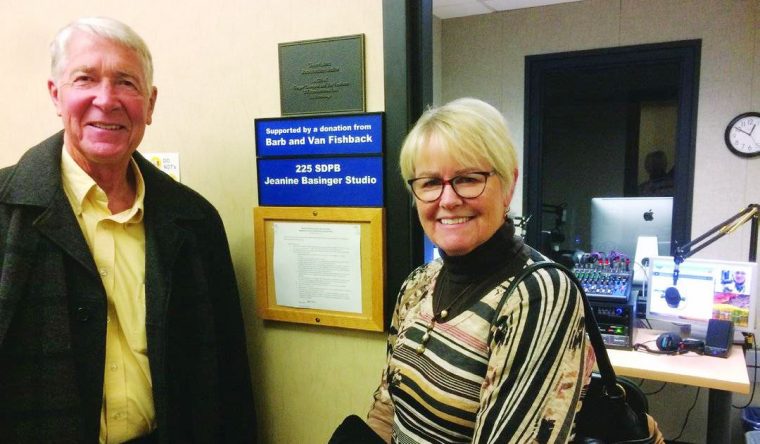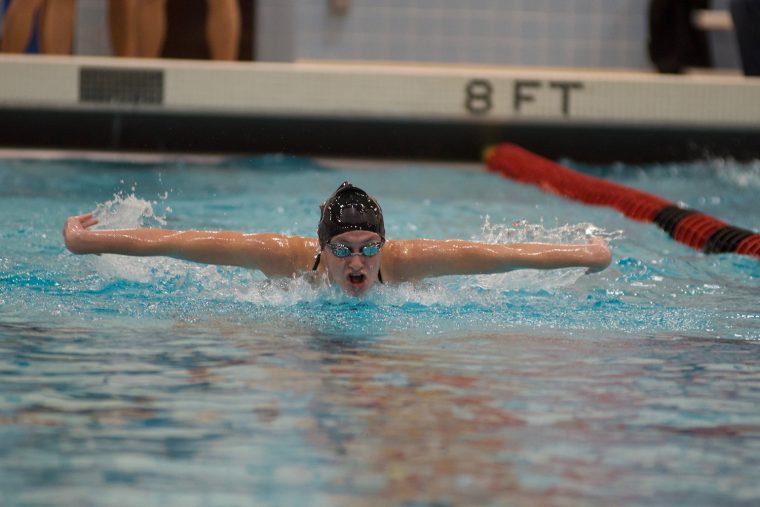Two Wesleyan seniors will spend a year abroad working on purposeful international discoveries as 2019 Thomas J. Watson Fellows. Momi Afelin '19 and Justin Kim '19 are among 41 students from 40 partner institutions across the country to receive the prestigious fellowship. The Watson Fellowship is a rare window after college and pre-career for students to engage their deepest interests on a global scale. Fellows conceive original projects, execute them outside of the United States, and gain personal insight, perspective, and confidence. Afelin, a biology and neuroscience and behavior double major, will spend her fellowship year working on a project titled "Island Innovation:…
Wesleyan students and staff traveled to Johnsonburg, N.J., March 18-22 to participate in the fourth annual Office of Religious and Spiritual Life Interfaith Service Trip. The group had representation from the Protestant, Catholic, and Muslim communities. The student participants included Nacala Gadsden '21, Joy Adedokun '19, Fitzroy Pablo Wickham '21, Brynn Assignon '20, and Fatima Sepulveda '21. The trip was led by University Chaplain Rev. Tracy Mehr-Muska and Sandy Durosier '13, area coordinator for residential life. "The purpose of the trip was to engage in community service and learn about other faiths," Mehr-Muska said. The group stayed at the faith-based Johnsonburg Camp…
Laura Grabel, the retired Lauren B. Dachs Professor of Science and Society, received an award at the 15th Annual Connecticut Technology Council Women of Innovation® Awards presentation on March 27. The Women of Innovation® program recognizes women innovators, role models, and leaders in science and technology professions, as well as outstanding young women at the high school and collegiate level pursuing technology studies. Of 50 finalists, 11 were recognized as winners in their respective categories; Grabel took the top spot in the Academic Innovation & Leadership (Postsecondary) category. Grabel, who also is a retired professor of biology, is an accomplished scientist…
Two Wesleyan students were inducted into the 2019 American Society for Biochemistry and Molecular Biology (ASBMB) Honor Society in March. They are among only 33 students from around the country who were eligible to join the society this year. The inductees, Mackenzie Mitchell '20 and Edelina (Lina) Marzouk '19 are both majoring in molecular biology and biochemistry and the Science in Society Program. They are both members of the ASBMB Student Chapters, have a GPA of over 3.4 on a 4.0 scale, and have demonstrated exceptional achievement in academics, undergraduate research, and science outreach. The students were recognized by the Molecular Biology &…
Several Wesleyan students, faculty, and alumni attended the 50th Lunar and Planetary Science Conference (LPSC) March 18-22 in The Woodlands, Texas. Members of the Wesleyan Planetary Sciences Group presented their research on a range of planetary bodies. This annual conference brings together international specialists in petrology, geochemistry, geophysics, geology, and astronomy to present the latest results of research in planetary science. Earth and environmental studies major Emmy Hughes '20 presented a poster titled “Observations of Transverse Aeolian Ridges in Digital Terrain Models" during a session on “Planetary Aeolian Processes.” Earth and environmental science graduate student Reid Perkins MA '19 presented a…
Vietnam native Jess Tran '21 grew up learning her native language alongside English, but it wasn't until her freshman year at Wesleyan that she decided to give a third language a try—Japanese. Tran, an economics major and College of East Asian Studies minor, immersed herself in the new language for two years. This month, she won a prize at the annual Consulate General of Japan in Boston Japanese Language Contest. The essay prompt was "What is Japan to me?" "In essence, I talked about how my initial admiration for certain aspects of Japan inspired me to think about how I can contribute to Vietnam—my home…
During Wesleyan's second annual TEDxWesleyanU in April, a Wesleyan junior will have the opportunity to deliver a 10-minute talk alongside numerous distinguished alumni and guest speakers. As the inaugural TEDxWesleyanU Student Speaker Competition winner, Dylan Shumway '20 will share his talk titled "Small Moments" at the April 27 conference. "My talk focuses on how small interactions we have on a daily basis can impact our lives on a larger scale, and that we should utilize their impact to foster positive change," Shumway said. "Developing a TED talk was a fun and engaging challenge because it has allowed me to synthesize my…
Alison Williams ’81 has been hired as Wesleyan’s new vice president for equity and inclusion/Title IX Officer, President Michael Roth announced in a campus email on March 26. Williams, who earned her bachelor’s degree in chemistry at Wes and later served as an alumni-elected trustee in the 1990s, will begin on July 22. She is currently the associate provost for diversity and intercultural education at Denison University. There, she is responsible for directing and supporting diversity, inclusion and equity initiatives across all sectors of the University, with a focus on faculty recruitment and retention and inclusive pedagogies. She also supports…
At the University’s 187th Commencement on May 26, Wesleyan will present the Baldwin Medal, the highest award of the Alumni Association, to Barbara-Jan Wilson. For over 36 years, Wilson has been a stalwart in the Wesleyan administration and a driving force behind the University’s fundraising efforts. Beginning at Wesleyan in 1982 as the director of Career Planning, she moved on to serve as dean of Admission and Financial Aid in 1990, and then as vice president of University Relations from 1999 to 2018. Throughout that time, Wilson has been one of the University’s biggest champions and cheerleaders, boldly and convincingly…
"Consider an icosahedron with every edge labeled from 1 to 30. Color these edges red, white, or blue, such that no face has all three edges the same color or all three faces the same color. How many ways are there to do this?" If you can solve this problem, you might have what it takes to participate in the annual William Lowell Putnam Mathematical Competition, a preeminent mathematics competition for undergraduate college students. "The problems themselves are very difficult, often asking us to demonstrate that a general statement is true rather than to solve a specific problem, or if…
South Dakota State University (SDSU) recently named a studio in honor of Jeanine Basinger, the Corwin-Fuller Professor of Film Studies and special advisor to the president. Basinger has a bachelor's and a master's degree from SDSU and is a former resident of Brookings, S.D. The South Dakota Public Broadcasting (SDPB) Jeanine Basinger Studio, located on SDSU's Brookings campus, enables professional, high-quality sound for guests and interviews. The Basinger Studio was funded by Brookings residents Barb and Van Fishback. “We are pleased to recognize SDSU Distinguished Alumna and world-renowned film educator and author Jeanine Basinger with the new SDPB Basinger Studio," said Barb and…
The Wesleyan University winter athletic teams put a total of 73 student-athletes on the 2019 NESCAC Winter All-Academic Team, while eight Cardinals earned All-Sportsmanship honors as announced by the conference. In order to earn a spot on the All-Academic Team, a student-athlete must have reached sophomore academic standing and be a varsity letter winner with a minimum GPA of 3.50 or equivalent on a 4.0 scale. Transfer students are eligible as long as they have completed at least one year of coursework at the institution. (more…)


